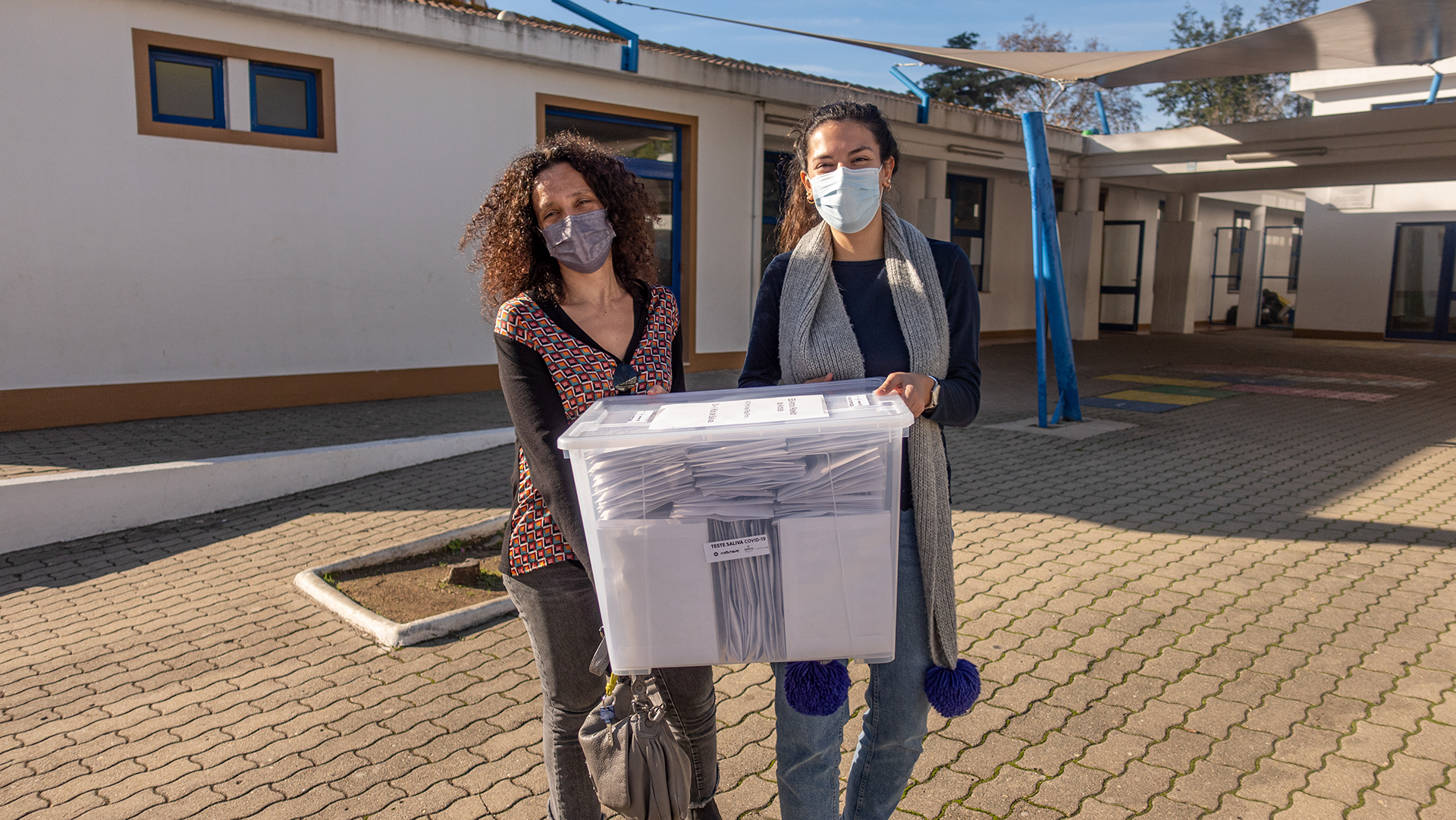Oeiras Municipality and ITQB NOVA promote a monitoring study to COVID-19 with saliva tests in schools
ITQB NOVA and Oeiras Municipality will provide saliva tests to COVID-19 to all pre-school, 1st and 2nd cycle students of Oeiras public schools. The implementation of the saliva tests will begin on Thursday, January 13, and will cover up to 10,000 students in the schools of Oeiras by March.
The testing is part of a study led by ITQB NOVA researchers Catarina Pimentel and Mónica Serrano and aims to validate tests for the detection of the SARS-CoV-2 virus in saliva samples and allow the screening of COVID-19 cases in the school community.
At this stage of the COVID-19 pandemic, and with school resuming, simple and quick screening for SARS-Cov-2 is critical to break chains of transmission.
"Since the beginning, Oeiras Municipality has supported the Science and Research institutes of the municipality in several initiatives to fight COVID-19 and this study was no exception. It makes sense to reinforce the testing to break transmission chains, so the school community and families feel that schools are a safe environment, that they feel some tranquility, and it is worth mentioning that this testing method is less invasive for children”, explained Isaltino Morais, Oeiras Chamber President.
For Cláudio Soares, Dean of ITQB NOVA, "the collaboration between ITQB NOVA and Oeiras Municipality became even stronger during the COVID-19 pandemic", underlining also the fact that these tests are "less intrusive, so they are ideal for testing children".
The saliva test developed by the team of researchers at ITQB NOVA uses the RT-PCR technique and has a specificity of 100% and sensitivity of 92% for medium to high viral loads. They use a different detection than traditional RT-PCR molecular tests, which makes them cheaper. They are applied directly to saliva samples, eliminating the need for extraction of the virus genetic material, with very promising results.
Their speed, sensitivity, ease of collection and low cost make these tests particularly interesting for screening SARS-CoV-2 infection. "Because of their low cost and due to their simplicity, saliva tests enable more frequent testing of communities. Frequent testing of the asymptomatic population is extremely important to contain the pandemic, because a very significant percentage of transmissions are made by asymptomatic or pre-symptomatic individuals", explains researcher Catarina Pimentel.
"Children in this age group don't usually participate in screenings done in schools, so this test can be a good alternative," adds researcher Mónica Serrano.
The team of ITQB NOVA researchers has been developing and implementing test models for COVID-19 using saliva since the end of 2020, in collaboration with Laboratório de Bromatologia e Defesa Biológica (Unidade Militar Laboratorial de Defesa Biológica e Química), Hospital das Forças Armadas and Oeiras Municipality. These tests are now in the validation phase.

Researchers Catarina Pimentel and Inês Morais delivering tests at schools







